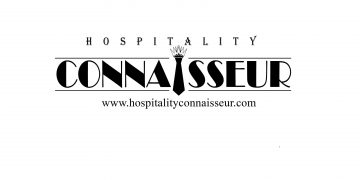Materials management is a core supply chain function and includes supply chain planning and supply chain execution capabilities. If you are a Hotelier wants to learn about Material Management and how you can use this knowledge in your supply chain in the Hotel Industry then you must read this article. Hotel Industry needs a High worth candidates who knows Scope and Functions of Material Management.
Specifically, materials management is the capability firms use to plan total material requirements. The material requirements are communicated to procurement and other functions for sourcing.
In simple words, The definition of Material Management will be “the function responsible for the coordination of planning, sourcing, purchasing, moving, storing and controlling materials in an optimum manner so as to provide a pre-decided service to the customer at a minimum cost.” From the definition, it is clear that the scope of materials management is vast, especially in the Hotel Industry.

Scope and Functions of Material Management
Considering the Hotel Industry in general, There are mainly 8 functions of materials management, we must learn.
- Material Planning and Control
- Purchasing
- Stores Management
- Inventory Control or Management
- Standardization
- Simplification
- Value Analysis
- Ergonomics (Human Engineering)
Now, Let’s get to know each of them in a brief manner.
🟢 Materials planning and control
Based on the sales forecast and production plans, materials planning and control is done. This involves estimating the individual requirements of parts, preparing materials budget, forecasting the levels of inventories, scheduling the orders and monitoring the performance in relation to production and sales.
🟢 Purchasing
This includes the selection of sources of supply finalization in terms of purchase, placement of purchase orders, follow-up, maintenance of smooth relations with suppliers, approval of payments to suppliers, evaluating and rating suppliers.
🟢 Stores management or management
This involves physical control of materials, preservation of stores, minimization of obsolescence and damage through timely disposal and efficient handling, maintenance of store records, proper location and stocking.
A store is also responsible for the physical verification of stocks and reconciling them with book figures. A store plays a vital role in the operations of a company.
🟢 Inventory control or management
Inventory generally refers to the materials in stock. It is also called the idle resource of an enterprise. Inventories represent those items, which are either stocked for sale or they are in the process of manufacturing or they are in the form of materials, which are yet to be utilized.
The interval between receiving the purchased parts and transforming them into final products varies from industries to industries depending upon the cycle time of manufacture.
It is, therefore, necessary to hold inventories of various kinds to act as a buffer between supply and demand for the efficient operation of the system. Thus, effective control on inventory is a must for the smooth and efficient running of the production cycle with the least interruptions.
🟢 Standardization
Standardization means producing a maximum variety of products from the minimum variety of materials, parts, tools, and processes. It is the process of establishing standards or units of measure by which extent, quality, quantity, value, performance, etc. may be compared and measured.
🟢 Simplification
The concept of simplification is closely related to standardization. Simplification is the process of reducing the variety of products manufactured. Simplification is concerned with the reduction of product range, assemblies, parts, materials, and design.
🟢 Value analysis
Value analysis is concerned with the costs added due to inefficient or unnecessary specifications and features. It makes its contribution to the last stage of the product cycle, namely, the maturity stage.
At this stage research and development no longer make positive contributions in terms of improving the efficiency of the functions of the product or adding new functions to it.
🟢 Ergonomics
Also known as Human Engineering, The human factors or human engineering is concerned with the man-machine system. Ergonomics is “the design of human tasks, man-machine system, and effective accomplishment of the job, including displays for presenting information to human sensors, controls for human operations and complex man-machine systems.”
We hope that you have learnt basics of Material Management by reading this to-the-point article. Kindly explore other set of article to learn more about your Field of Interests. We have everything Hospitality!
- What are the Types of Thickening Agents?
- How to start Micro Breweries business in India?
- 5 Challenges And Problems of Indian Tourism every Hotelier must know
- Major Loyalty Programs In Hotels And Airlines – offered to their guests
Do Check out Our Keynote Courses of Front Office, Housekeeping, Food & Beverage Service, Hotel Law, Food Production and Human Resource Management. Start Reskilling & Upskilling Today. Develop niche skills and make yourself ready for ‘New Normal’. CLICK HERE to know more!




























